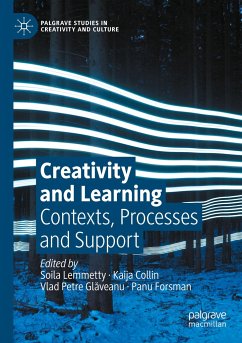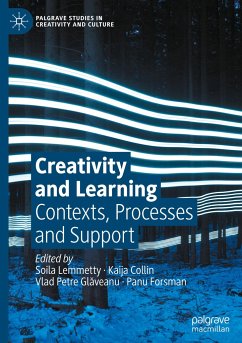
Imagining Collective Futures
Perspectives from Social, Cultural and Political Psychology
Herausgegeben: de Saint-Laurent, Constance; Obradovic, Sandra; Carriere, Kevin R.
Versandkostenfrei!
Versandfertig in 6-10 Tagen
113,99 €
inkl. MwSt.

PAYBACK Punkte
57 °P sammeln!
It is a commonly held assumption among cultural, social, and political psychologists that imagining the future of societies we live in has the potential to change how we think and act in the world. However little research has been devoted to whether this effect exists in collective imaginations, of social groups, communities and nations, for instance. This book explores the part that imagination and creativity play in the construction of collective futures, and the diversity of outlets in which these are presented, from fiction and cultural symbols to science and technology. The authors discus...
It is a commonly held assumption among cultural, social, and political psychologists that imagining the future of societies we live in has the potential to change how we think and act in the world. However little research has been devoted to whether this effect exists in collective imaginations, of social groups, communities and nations, for instance. This book explores the part that imagination and creativity play in the construction of collective futures, and the diversity of outlets in which these are presented, from fiction and cultural symbols to science and technology. The authors discuss this effect in social phenomena such as in intergroup conflict and social change, and focus on several cases studies to illustrate how the imagination of collective futures can guide social and political action. This book brings together theoretical and empirical contributions from cultural, social, and political psychology to offer insight into our constant (re)imagination of the societies in which we live.














